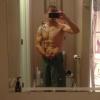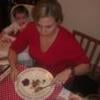Search the Community
Showing results for 'alcohol'.
Found 17,501 results
-


Alcohol WithOut Liquid
lisaenidok replied to Amber's topic in POST-Operation Weight Loss Surgery Q&A
Guess others will have to be the guinne pigs for this experiment ;P LOL Did wonder about the amount needed though. When drugs can't be given IV in a code situation, you can give some through the breathing tube, BUT at 4 times the dose to do anything. Figured alcohol would require same 'dose' adjustment. IDK Need to keep every last brain cell I have ;P -
Hey Gang! I just got back from the endocrinologist. I was pleasantly surprised to find I do not have low D. In fact, he told me I had excellent numbers especially my cholesterol. My good cholesterol is 103. He is the second doctor in two weeks to tell me I am going to live a long time. He said he had never seen anyone lose 80lbs on a lap band like I did. He just doesn't know all of you. I have gained, but he said it was probably the Savella(FM drug) and Lexapro. Now, I am going to talk to the shrink about getting off of it or cut it down. Apples, I know you care very much about me succeeding on this journey. I appreciate all the comments. I just want y'all to know where I am coming from. I do believe I have an addiction to sweets. I inherited it from my dad who was and alcoholic. The more I battle it daily the more I forgive my dad for his disease. The more I forgive the stronger I become. This is definitely "One day at a time". Your poor FIL. I take it he is coming back to MN. Who is going to care for him while he recovers? Yes, you BIL is the current saint. I hope all the sisters appreciate his sacrifice. I know you do. Melissa, I know your DH is being a butt. Men always feel less than whole when they can't give their families all their needs. Try real hard to reassure him that you understand. I am praying for you a full time position. What is a carb monster Soup? Where are the recipes? Linda, I am going to see if I can watch that show online. I am sorry I missed it. I have been watching Dr. Oz. He has so many health tips. Eva, I have seven cherry tomatoes on one plant. Now I just go out twice a day to check on my garden. I had forgotten how much I loved having a garden. This is my first time to have an above ground garden. I put some Miracle Grow soil in it so I should have a good crop. LauraK, I know what you mean.....a vacation sounds so good especially after a hard winter Sndy......well, your doctor knows best. My friend just did not want to be put to sleep three times. She is a nurse so all that stuff scares her. I'm ignorant......so I just trust God has put me in good hands and He will wake me up.
-


Food addictions and lap band!
Rainydayz replied to Deidra's topic in PRE-Operation Weight Loss Surgery Q&A
Shirley you are right. I tend to swap addictions. I used to smoke. Then I quit and I've gained almost 90 pounds since then! I'm hoping that I can become addicted to being healthy and exercising. When I was young I loved running and playing sports. I really hope I can get back to that kind of "addiction." And as far as food being an addiction like alcohol or drugs - well can you imagine a drug addict just taking a little drug every day or an alcoholic taking one drink a day? I've known recovered drug addicts that don't even take pain meds because they're afraid of becoming addicted again. But food addicts can't do that. We have to eat everyday. Maybe a program would help. I don't think it's a horrible thing to do a program if you're addicted to something. It shows that you admit you need help. And we all need help or we wouldn't be here getting the band right? So, like pp said don't knock it. It may be just what you need. -


Food addictions and lap band!
54Shirley replied to Deidra's topic in PRE-Operation Weight Loss Surgery Q&A
If anyone has had the experience of swapping one addiction for another. ie: food to alcohol Post it O.K.... This is really quite common for some people "NOT ALL". Point is these are people that have known addiction all there life, "FOOD" so when they get over the food addiction, lose a great deal of weight., they have already picked up another addiction. This way it keeps them from going back to their food addiction. The pattern continues. I have a son who has given up the bottle, only to discover that he loves to eat everything. He's 36, and has been very thin, and a very picky eater all his life. But the bottle was a great life to him. Now he totally loves food. I keep telling him, remember me! I no what a food addiction is... He agrees, he said he would rather be fat then a Drunk. I agree to that thought, but,,, I told him don't get to fat ! It's to hard to get off. He doesn't look fat, just thickened out. But still you have to watch... What's not fare about a food addiction "I THINK" is you need food to live, it's a must. So to tempt you every day is rough! Booze and Drugs are your own choice. You don't need them to live. I met a lot of people like this at Band Meetings. The one I will never forget was a man that lost over 400LBS. with the Band. He was also a memember of A A & N A. He was my first experience as to swapping addictions.. -


Food addictions and lap band!
Llyra replied to Deidra's topic in PRE-Operation Weight Loss Surgery Q&A
Hey, there, back up a minute. Do you really consider a problem with food somehow superior or more socially acceptable to a problem with drugs or alcohol? Addiction is addiction. Some of the finest people I know are veterans of twelve step programs, and yes, I met them while sitting in the rooms myself. The lap band is not a miracle worker; it won't change your attitude, your mental processes, or your addiction. You have to do that yourself and a twelve step program gives you a plan to follow and support along the way from people who understand exactly what you are going through. Give yourself a break. Don't knock OA till you try it. I wish you the best. -


Last Big Roadblock Down!
doggz109 replied to meggiep's topic in PRE-Operation Weight Loss Surgery Q&A
YAY for you!!!! I agree that you handled your family perfectly. Why do family and friends get so negative about WLS surgery? I mean someone could be an raging alcoholic or drug user and I swear.....I think they get less grief from their families than a lot of WLS surgery patients do. It's crazy. You are on the way to improving your life. Go you! -


Alcohol WithOut Liquid
KinkySlinky replied to Amber's topic in POST-Operation Weight Loss Surgery Q&A
Interesting to know that it didn't do much for you.. I figured it smelled horrible lol.. Wonder what would happen if you nebulized a strawberry daiquiri or a pina colada or even coconut flavored rum??? HMMMM LOL j/k.... Oh well.. Thanks for trying it out and letting us know!!!! There are die-hard alcoholics that will drink listerine or in a worst case scenario, rubbing alcohol, when desperate... -


Alcohol WithOut Liquid
BlackBerryJuice replied to Amber's topic in POST-Operation Weight Loss Surgery Q&A
I don't know if it'd work very well, otherwise alcohol wipes would be flying off the shelves! I've never gotten any sort of buzz from using rubbing alcohol, for example. -
Ok recognizing right away this in nothing but a nebulizer ( ae machine for vaporizing liquid medicine) I immediately dug out the old nebulizer and filled it with vodka as the idea of relaxed and buzzed minus calories was very appealing! Well the alcohol did indeed vaporize. Buzz???? Not anywhere near what a shot would do. Worries? I could smell the alcohol, much like rubbing alcohol. Made my lungs ache. Long term damage?
-


Alcohol WithOut Liquid
lisaenidok replied to Amber's topic in POST-Operation Weight Loss Surgery Q&A
OMG! Reading too much here on the alcohol subject. Sounds like teens- girls AND guys, are using vodka soaked tampons as another way to get a buzz. CRAZY! -


Alcohol WithOut Liquid
lisaenidok replied to Amber's topic in POST-Operation Weight Loss Surgery Q&A
http://www.gotvape.com/vaporizer/alcohol-vaporizer.php Well looks like if you're gonna tie on a few and drive yourself home (dumb idea) that this is the way to go. Apparently you get the alcohols effects but the breathalizer tests can't get a reading like if you had drank the liquor. Parents out there- if you have a nebulizer and teens in the house, keep a close eye/ nose out for alcohol use in this manner! -


Alcohol WithOut Liquid
lisaenidok replied to Amber's topic in POST-Operation Weight Loss Surgery Q&A
Have heard of this before. Never met anyone that has tried it though. Hmmmmm don't need the extra O2 but could just as easily use a nebulizer. Hmmmm may have to experiment this weekend ;P Guess as long as it's an alcohol without all the sugary mixers it wouldn't hurt. Otherwise I could see the sugars making an easy breeding ground for bacteria in the lungs. Ewwwww. Talk about catching your death of Pneumonia. Jeez. Think I'll wait for further research to come in on the topic. Looks to be a cool novelty though. -


Alcohol WithOut Liquid
KinkySlinky replied to Amber's topic in POST-Operation Weight Loss Surgery Q&A
I think if I am going to inhale anything that's been vaporized, I'd much rather inhale vaporized marijuana than alcohol!!!** LOL... I doubt you get the hangover with vaporized alcohol though, which is a perk... I don't really like alcohol much anymore, why get bloated on something that's just going to make you feel like crap the next day? But yes, similar vaporizers are available for illegal drugs... **I am not advocating weed smoking... Just making comparisons since it was mentioned that it is like drugs -
I'm not saying I'm a drinker, since I'm underage, but this was really interesting. AWOL or Alcohol WithOut liquids. They came out with a machine where you inhale the alcohol, like oxygen, so you can get the buzz without the extra calories. It goes to the lungs instead of the stomach. I thought for WLS patients who enjoy the buzz but have trouble drinking, this is a like a 'loophole.' I have a couple links. Skip to 3:23 in the video if you don't want to watch the whole thing. I'm having trouble deciding my thoughts on this. It's the same thing as drinking but it reminds of me drugs too much, I think. What are your thoughts? http://www.ebasedprevention.org/oewn/awol http://www.youtube.com/watch?v=6sqGgMXIllA
-


Day 6 post op still lots of diarrhea, is this normal?
t-salt replied to warrior68's topic in POST-Operation Weight Loss Surgery Q&A
Re-evaluate your diet. I to have had bad diarrhea and eliminated sugar free pudding and jello and it slowed down quit a bit. I also had problem with milk but I love milk so much that I still try to have some to maybe get used to it again. I talked to my NUT yesterday and she informed me that sugar alcohols in sugar free products will cause diarrhea (as posted earlier in this thread) -
Every surgeon is different for sure... Mine let me have coffee in the recovery room.... lol Mine allows alcohol, caffeine, and carbonated beverages - carefully and in accordance with ones' tolerance - they all effect each of us differently. Personally, I'm a coffeeaholic... I drink many, many cups every day. Brad
-


Do you count net carbs or all carbs?
Tiffykins replied to Becca's topic in POST-Operation Weight Loss Surgery Q&A
A carb is a carb. For me it was/is a patience thing, plus I'm not sure I can fully trust manufacturers on fiber counts that would negate the carb intake(Mac on OH posted this back when I was in my losing stage, and it made sense then and now). I think it boils down to protein to carb ratio. My protein to carb ratio had to be a minimum of 4:1 meaning if the protein count didn't have at least 4 times the amount of carbs, it never went past my lips. I was especially cautious with carbs in protein bars/drinks. I'd see some protein bars had 15gr of protein, but had 25-40grams of carbs. Those carbs, plus the usual sugar alcohols in protein bars were my carb allowance for an entire day. I'd rather grab some beef jerky or cheese over those kind of bars. -
I found this info and wanted to pass it on. It has a lot of ideas on foods to eat in each food stage after surgery. PLEASE clear ALL info with your doctor first, though!! Dietary Guidelines after Bariatric Surgery The purpose of the following guidelines is to reduce the symptoms associated with gastric bypass surgery, promote long-term satisfaction, and to achieve and maintain a desirable weight. The diet following surgery is divided into three phases. Phase I: First 2 weeks* after surgery - liquids (*Time frame varies according to physician) Acceptable beverages include: Water Flavored waters that are sugar-free and non-carbonated Crystal Light® (generic brands are fine) broth, bouillon, consommé (chicken, beef, or vegetable) Sugar-free popsicles Sugar-free Gelatin "Sport drinks" (Gatorade, Powerade) slightly diluted with water Sports drinks with less sugar such as Powerade Zero, G-2, or Propel Tea: unsweetened or artificially sweetened; iced or hot; black, green, or herbal (decaffeinated is best, but caffeinated fine if less than 2 cups a day) coffee (decaffeinated is best, but caffeinated fine if less than 2 cups a day) Sugar-free, fat-free hot cocoa (made with milk) Skim, 1%, Ultraskim, or Superskim milk* Fat-free or low-fat soy milk, Lactaid®, or Dairy Smart® No Sugar Added Carnation® Instant Breakfast Any other Protein supplement as long as the first ingredient states "whey protein isolate" or "soy protein isolate" (example: Bariatric Advantage®) Tomato Soup made with 1% or skim milk *Use caution as some people become lactose intolerant after surgery. If you experience intolerance to dairy, try soy milk, Lactaid®, Dairy Smart®, rice milk, or almond milk. Avoid: Fruit juices: both 100% fruit juice and those with added sugar Diet soda (or anything that is carbonated) Alcoholic beverages Suggestions for Phase I Diet: Increase liquids as tolerated to at least 2 liters a day (64 oz., or eight 8 oz. cups). Drink enough Fluid to keep your urine a clear, pale yellow color. If your urine becomes cloudy, dark or foul-smelling, drink more! Sip slowly throughout the day. Drink 8 oz. of fluid over a period of 1 hour. Do not gulp liquids or drink too quickly. Gulping or drinking too fast can cause abdominal pain and/or nausea. Protein goal is 60 to 80 grams/day; this may not be possible at first, but patients should work towards this amount of protein. It is very important to avoid any liquids with a high amount of sugar at this time (more than 15 g. in an 8 oz. serving). Sugary liquids may cause dumping syndrome, which is something you do not want to experience. Plus they are an added source of unwanted calories. Avoid drinking from a straw. When you drink from a straw you swallow more air, which may make you belch more often. Carbonated beverages are to be avoided for the same reason; they will cause excess gas. Pre-freeze or refrigerate plastic bottles of water, Crystal Light®, tea, etc. and carry the bottle around with you so that you can take small, frequent sips of fluid throughout the day and avoid becoming dehydrated. During this phase of the diet, begin taking a chewable multivitamin/mineral supplement twice a day. Other Vitamin and mineral supplements (Calcium, Vitamin D, vitamin B12, and iron) may be started as well. (See the vitamin section of this handout for examples). Phase I Sample Menus Note: Times of day are irrelevant! The point is to sip constantly during your waking hours. First 2 weeks after surgery -- generally sip on 8oz. fluid over a one-hour period of time. 8am: 8oz. water & Multivitamin 9am: 8oz. decaf coffee w/ Splenda® 10am: 8oz. skim milk + one serving of approved protein supplement 11am: 8oz. Crystal Light® 12pm: 8oz. chicken broth 1pm: ½ cup sugar-free gelatin 2pm: 8oz. water 3pm: 8oz. water 4pm: 8oz. skim milk + one serving of approved protein supplement 5pm: 8oz. vegetable broth 6pm: sugar-free popsicle 7pm: 8oz. herbal tea & multivitamin 24oz. water + 8oz. Crystal Light + 16oz. broth + 16oz. decaf coffee/tea + 4oz. gelatin + 1 popsicle + 16oz. skim milk = at least 84oz. fluid and ~ 66g of protein Note: if abdominal cramping, bloating, nausea and/or gas is experienced with cow’s milk, try soy milk or Lactaid®. 8am: 8oz. water & multivitamin 9am: 8oz. Orange sugar free, noncarbonated beverage 10am: 8oz. skim milk + one serving of approved protein supplement 11am: 8oz. sugar-free hot cocoa 12pm: 8oz. beef broth 1pm: 8oz. decaf ice tea w/ lemon 2pm: 8 oz.skim milk + one serving of approved protein supplement 3pm: sugar free popsicle 4pm: ½ cup sugar-free gelatin 5pm: 8oz. water 6pm: 8oz. chicken broth 7pm: 8oz. water & multivitamin 32oz. water+ 16oz. milk + 16oz. broth + 16oz. ice tea/hot cocoa + 4oz. gelatin + 1 popsicle. = at least 84oz. fluid and ~ 66g of protein Phase II: Week 3-6 weeks after surgery - Soft Foods Protein (include one of the following protein foods at each meal) Fat-free or low-fat cottage cheese and ricotta cheese Fat-free or low-fat artificially sweetened yogurt. Look for versions with less than 15 grams of sugar per serving. Low-fat or fat-free Greek yogurt Sugar-free, fat-free pudding eggs, egg whites, Eggbeaters® (poached, scrambled, soft-boiled) Sugar-free egg custard Tofu Canned baby meats/pureed meats Sliced/shredded fat-free or low-fat cheese Canned/vacuum packed tuna, salmon, chicken Baked fish that flakes easily with a fork (cod, salmon, tilapia, crab meat, etc.) Thinly-sliced lean deli turkey breast or ham Lean ground beef, pork, or turkey (93% lean or better) Only include the following foods in your meal plan if you are consuming 60 to 80 grams of protein a day: Fruits Unsweetened applesauce Diced peaches or pears (canned in own juice) banana (soft) Vegetables Soft-cooked vegetables such as carrots, green Beans, broccoli, cauliflower (mushy, not crunchy) Starch/Other Mashed potatoes, sweet potatoes, or winter squash Dry Cereal soaked in milk Cooked cereals (baby oatmeal, cream of wheat/rice, farina, grits) made with milk *May add nonfat dry milk powder or Protein Powder to foods and beverages to increase protein content. Allowed Condiments Sugar (no more than one teaspoon per meal) Artificial sweetener (Splenda®, Equal®, etc.) Non-dairy, fat-free, or powdered creamer Light margarine (free of trans-fats) Ketchup Light or fat-free mayonnaise Sugar-free jam, jelly, or preserves Reduced-fat and fat-free salad dressings Hot sauce Mustard Use Sparingly Butter and regular margarine Cream Regular mayonnaise Cream cheese Natural Peanut Butter Avoid--these foods usually are not tolerated well this soon after surgery. Raw fruits (except bananas), dried fruits, and raw vegetables Corn, peas, and popcorn Pasta, noodles, rice, bread Nuts and coconut Alcohol Carbonated beverages Greasy or fried foods Suggestions for Phase II diet: During this phase, begin the practice of eating only 3 small meals a day. Do not snack or “graze” throughout the day. Grazing and snacking lead to poor weight loss after surgery. Grazing is also associated with significant weight regain after surgery. Make it a habit to eat very slowly (putting your fork down between each bite) and chew your food very thoroughly (to a mushy consistency). Try to make each meal last 20 minutes. Take small bites. Learn to stop eating when you feel full, which initially may be after only 2 or 3 bites of food. Indications of fullness include a feeling of pain or pressure in the center just below your rib cage, nausea, or pain in your shoulder or upper chest. Eat only until you feel satisfied. Your meals will be about 3-4 oz. (½ cup) in total size. Use small plates and cups, instead of large plates and bowls, for your meals. At this time, get into the habit of eating at least 2 oz. (or ¼ - ½ cup) of a protein rich food at each meal. In addition, eat the high protein portion of your meals first. If you are unsure which foods are high in protein, see the protein section of this handout. Aim for at least 60-80 grams of protein every day. Usually it is not hard to consume enough protein from food alone as long as you concentrate on eating high protein foods at each meal. Protein supplements (powders, shakes, bars, etc.) in most cases are not necessary. However, if you are truly concerned that you are not getting enough protein, or if you are experiencing a lot of nausea and vomiting and cannot consume high protein foods at meals on a consistent basis, then speak to your dietitian about protein supplement options and how often they should be taken. Continue to drink 2 liters of liquid each day (eight 8 oz. cups). However, do not drink liquids for 30 minutes prior to mealtime (to make sure your stomach is empty), do not drink anything with your meal (to allow room for food), and do not drink anything for 30 minutes after a meal (to prevent “washing” the food through the stomach too quickly). This will make a profound impact on your feeling of satiety (satisfaction and fullness) after eating. During this phase, begin taking the rest of your vitamin supplements (calcium, vitamin D, Iron, and vitamin B12) if you have not started already. Refer to the vitamin section of this booklet. Phase II Sample Menus Week 3 Breakfast ½ cup fat-free cottage cheese Mid-morning 8 oz. skim or 1% milk Sip 16 oz. of water or non-caloric beverage throughout the morning lunch 3oz. lentil soup or chili Mid-afternoon Sip 16 oz. of water or non-caloric beverage throughout the afternoon dinner ¼ cup scrambled egg (needs to be 'runny') ¼ cup Greek yogurt Evening 8 oz. skim or 1% milk Sip 16 oz. of water or non-caloric beverage throughout the evening The above sample menu provides about 70g. of protein and 64oz. (2 liters) of fluid. Week 4 Breakfast ¼ c. low-fat cottage cheese ¼ c. diced peaches Mid-morning 8oz. skim milk 16oz. water or non-caloric beverage throughout morning Lunch ½ c. canned tuna mixed w/ 2 T. extra-firm tofu, 1 T. fat-free sour cream, seasonings to taste Mid-afternoon 8oz. skim milk 16oz. water or non-caloric beverage throughout afternoon Dinner 1-2 thin slices each lean deli turkey breast & reduced-fat Swiss cheese, rolled (with 1 T. light mayonnaise) Evening 16oz. water or non-caloric beverage throughout evening 8oz. herbal tea The above sample menu provides 510 calories, 54.5g. of protein, and 72oz. of fluid. Week 5 Breakfast ¼ c. scrambled Eggbeaters® (moist) 2 oz. reduced-fat shredded cheddar ¼ c. diced pears Mid-morning 8oz. herbal tea 16oz. water or non-caloric beverage throughout morning Lunch ¼ c. canned chicken (made with 2 tablespoon plain fat-free yogurt) Mid-afternoon 8oz. vegetable juice 16oz. water or non-caloric beverage throughout afternoon Dinner 2oz. baked salmon ¼ c. green beans w/ 1 t. light margarine Evening 8oz. skim milk 16oz. water or non-caloric beverage throughout evening The above sample menu provides 61g. of protein, 72oz. of fluid. Week 6 Breakfast 1 scrambled egg (moist) ½ slice whole wheat toast 1 t. light margarine Mid-morning 1 Carnation® Instant Breakfast® No Sugar Added 16oz. water or non-caloric beverage throughout morning Lunch 2 thin slices lean deli ham 2 thin slices reduced-fat cheese 1 T. mustard Mid-afternoon 16oz. water or non-caloric beverage throughout afternoon Dinner ½ c. chili w/ beans 2-3 whole grain crackers Evening 8oz. skim milk 16oz. water or non-caloric beverage throughout evening The above sample menu provides 65g. of protein, 64oz. of fluid. Phase III: 6 Weeks and Beyond Time to experiment! Six weeks following surgery, you can begin to re-introduce a variety of foods back into your diet. We recommend that you begin with softer foods before moving to solid foods (example: try cooked vegetables before eating raw vegetables and canned fruits before eating raw fruits). But at this point in time, you can begin trying more solid pieces of meat, and raw fruits and vegetables again. Small meals, slowly, of healthy foods. It is important to eat at least 4 to 6 ounces of meat (protein) everyday. Be sure that the meat you are eating is moist and tender and avoid any tough, fatty or gristly meats. Your total protein goal will be at least 60 grams everyday. See the protein section to learn more about high protein foods. Suggestions for Phase III Diet: Continue to eat the high protein foods first when you sit down to eat a meal. The amount of food that you are able to eat after surgery is so small that you must focus on getting enough protein in your diet before anything else. Continue your exercise routine. This is a critical component to your success after surgery. Exercise will help you burn more calories and build lean body mass or muscle. The more muscle you have, the more calories you will burn. You will lose weight faster and keep it off as long as you are exercising. Recognize when you are full (pain or pressure in the center just below your rib cage, nausea, or pain in your shoulder or upper chest). Learn to stop eating when you are full, not when you are stuffed. If you eat until you are stuffed, you will stretch your stomach pouch. Continue the habit of only eating 3 small meals per day and avoid snacking and grazing! Snacking and grazing throughout the day will prevent you from reaching your weight loss goals. Remember that the only reason to eat is because you need the nutrients to keep you healthy! Phase III Sample Menus Week 7 Breakfast 2 slices turkey sausage ¼-½ c. oatmeal Mid-morning 8 oz. GNC ProPerformance® 100% Whey Protein supplement (made w/ skim milk) 16 oz. water or non-caloric beverage throughout the morning Lunch ½c. hummus ¼c. fresh dipping veggies (cherry tomatoes, celery, red peppers, etc.) Mid-afternoon 8oz. herbal tea 16oz. water or non-caloric beverage Dinner 3 oz. shredded pot roast with low fat gravy ¼ c. cooked carrots Evening 8 oz. skim or 1% milk 16 oz. water or non-caloric beverage throughout the evening This sample menu provides 67g. of protein and 72oz. of fluid. Week 8 Breakfast ½ c. fat-free, artificially sweetened yogurt (any flavor) ¼ c. mixed fresh berries Mid-morning 16oz. Revival Soy Protein shake made w/ soy milk 16oz. water or non-caloric beverage Lunch ¼-½ c. salad greens 2oz. chicken strips 2 Tbsp. Italian dressing Mid-afternoon 16 oz. non-caloric beverage or water throughout the afternoon Dinner 2oz. tender pork loin ¼ baked sweet potato w/ 1 T. light margarine Evening 8oz. soy milk 16oz. water or non-caloric beverage The above sample menu provides 800 calories, 81g. of protein, 72oz. of fluid. TROUBLESHOOTING Changing your eating habits will be important if the operation is to be a success. Although your smaller upper stomach and smaller opening that releases the food and liquid into the intestine will help, several of the following problems may be encountered once eating is resumed after surgery. Managing Liquids Fluids are needed to replace normal water loss and to prevent dehydration. We recommend that you try to drink 2 liters (or 64 oz.) of liquid (mostly water and non-caffeinated beverages) every day. Avoid liquids with meals, saving room for solid foods, and preventing the “washing” of food from the stomach. Stop drinking fluids at least 30 minutes before a meal, and wait at least 30 minutes after the meal, to allow for digestion of food. This will make a profound impact on your feeling of satiety (satisfaction or fullness) after eating. When drinking liquids, sip them slowly. If liquids are gulped too quickly, abdominal cramping, discomfort, and/or vomiting may occur. Avoid carbonated beverages and drinking from a straw for approximately 6 weeks after surgery. Doing this can help you to avoid excess gas and pressure. Nausea, Vomiting, Bloating and/or Heartburn Nausea, vomiting, bloating and/or heartburn can occur from any of the following: eating and drinking too quickly not chewing food well enough drinking cold fluids eating too much (quantity) eating rich or sweet foods, fried, or high-fat foods eating gas-producing foods or drinking carbonated beverages Dumping Syndrome Dumping syndrome can be a feeling of abdominal fullness, weakness, warmth, rapid pulse, cold sweats, nausea, possible vomiting, and possible diarrhea. This happens whenever foods and beverages that are high in sugar or grease are consumed and 'dumped' into the bowel quickly. To avoid dumping syndrome, avoid concentrated sweets (ice cream, milkshakes, candy, pies, Cookies, cake, sugar, syrup, honey, jelly, pastries, regular soda, fruit juices, barbecue sauces, etc). You may only be able to tolerate a teaspoonful of these items at a time, if any at all. This may also occur after eating greasy foods such as fried chicken or french fries. Blockage of the Stoma The new opening created by the surgery is smaller than the original opening that released food from the stomach into the intestine. This new opening may become blocked when food has not been thoroughly chewed, which can result in abdominal pain or vomiting. If you become unable to tolerate water within the first month after surgery, call us immediately. The sooner we learn of this problem, the more likely we will be able to treat it without surgery. To prevent blockage from occurring: Avoid eating high Fiber foods, such as raw fruits and vegetables, and starchy foods for the first 6 weeks after surgery. After 6 weeks time, be sure to chew high fiber foods very thoroughly. Chew all foods to the consistency of mush before swallowing. Be careful when chewing gum; if accidentally swallowed it can cause a blockage. Use chewable or liquid Multivitamins. Overeating The purpose of bariatric surgery is to create a smaller stomach so that it is unable to hold the large volumes of food it had held previously. Constant overeating can stretch your stomach pouch. Remember that your pouch is only 1 ounce (the size of your thumb). Meals should be about 3-4 ounces (1/2 cup). The more solid the food, the less you will be able to eat. You may be able to eat 4 ounces of applesauce, but only 2 ounces of beef. Even though the amount is smaller, choose the beef because you need the protein. To prevent stretching the pouch: Eat only three small meals each day, and measure your food before you eat to prevent overfilling the stomach. Eat slowly so that the nerve receptors in your stomach area can relay the message to your brain that your stomach is full. It takes approximately 15-20 minutes for the message of fullness to reach the brain. Take time between bites of food and stop eating as soon as fullness is experienced. Recognize when you are full, which can feel like pain or pressure in the center just below your rib cage, nausea, or a pain in your shoulder or upper chest. The next step is to stop eating when you feel full. Constant nibbling/grazing/snacking may not stretch your stomach pouch, but it is a common bad food behavior among people who do not meet their weight loss goals and/or regain significant amounts of weight after surgery. Undernutrition Total food consumption is reduced after surgery, and therefore, intake may be nutritionally inadequate. To compensate for reduced nutrient intake: Consume nutrient-dense foods daily, including a variety of lean meats, low-fat dairy, fruits and vegetables, and high fiber breads and cereals. Look for breads that have at least 3g of fiber per slice, and cereals that have at least 5g.of fiber per cup. Avoid empty calorie foods, including soda pop, Kool-Aid, chips, pretzels, popcorn, candy, pastries, sweets, and rice cakes. Avoid foods that are breaded and fried. Consume adequate high biological value protein foods each day. See the section on protein for examples of such foods. Take the recommended Vitamins (multivitamins, calcium, vitamin D, iron, and vitamin B12 supplements) every day. THIS IS IMPORTANT! Refer to the vitamin section of this handout. Food Intolerance Food intolerance varies widely and one individual may tolerate a food that disagrees with another person. Therefore, it is important to try a variety of foods. Each individual must try new foods carefully to test his or her reactions after surgery. The following foods may be difficult to eat, especially for the first few months: tough meats – dry, gristly meats may be difficult to digest. Meats (chicken, steak, burger, ham) should be moist and cut into very small pieces about the size of a pencil eraser. Go slowly. bread – fresh, doughy bread can form a ball and “gum up” the opening from the stomach pasta – pasta may form a paste and be more difficult to pass seeds and skins of fruits and vegetables, dried fruit, fibrous vegetables like corn, asparagus, and celery nuts and peanut butter Do not be discouraged if a certain food does not agree with you once. Wait a few weeks and try it again. Your stomach just might not have been ready for the food yet. VITAMIN SUPPLEMENTS AFTER GASTRIC BYPASS SURGERY It is important that you take vitamin supplements everyday for the rest of your life after having a gastric bypass. If you do not take your vitamin and mineral supplements after surgery you will become malnourished! This is because not only are you unable to consume enough food (quantity) to meet your vitamin & mineral requirements, but also because you will have a decreased ability to digest and absorb certain nutrients after having gastric bypass surgery. We recommend that you take a multivitamin, plus extra calcium, iron, B12 and Vitamin D supplements. Begin taking a multivitamin twice a day while on liquids during the first 2 weeks. Add your calcium, iron, B12, and Vitamin D supplements when you progress to soft foods in the third week following your surgery. To make sure you are taking everything you need, in the correct dose, and in the correct form, we recommend Bariatric Advantage supplements. These are specifically designed for bariatric patients and their specific needs. Multivitamins Start taking one chewable multivitamin/mineral supplement twice a day while on liquids. When you progress to soft foods, take them with meals. We recommend one of the following:. Bariatric Advantage® Chewable Multi FormulaAvailable in the office or online at www.bariatricadvantage.com[*]Celebrate vitamins chewable (available at www.celebratevitamins.com)[*]Opurity chewable (available at www.opurity.com)[*]Centrum® Chewable About two months after surgery (or when you are able to take pills and can tolerate solid foods), you can switch to a non-chewable if desired, however, we recommend a bariatric-specific chewable multivitamin long-term over any other product. If you choose to take an over-the-counter vitamin, we recommend any of the following, to be taken twice a day with food (generic, store-brand equivalents are fine): One-A-Day® Men’s/Women’s Formula Centrum Performance® Centrum Silver® based on your age Take one multivitamin, twice a day (for example 1 at breakfast, 1 at lunch), rather than both at the same time to maximize your absorption of each vitamin. Calcium There is typically only a small amount of calcium in multivitamins. Therefore, we recommend taking an additional 1000mg-1200mg of calcium everyday when you progress to soft foods. At this stage after your surgery, you will need to take a chewable form because most chewable supplements are too large and difficult to swallow. There are different forms of calcium such as calcium carbonate and calcium citrate. Calcium citrate is the most efficiently absorbed form of calcium following gastric bypass. However, citrate is difficult to find in a chewable form, so we recommend Bariatric Advantage calcium which provides citrate in a chewable. Bariatric Advantage Calcium Citrate Chewy Bites(2 chews twice a day) Bariatric Advantage Calcium Citrate Lozenges (one lozenge 2-3 times per day) Switch to a non-chewable form of calcium citrate when able to tolerate a solid pill. Take one dose (500mg-600mg) twice a day with meals for a total of 1000-1200mg of additional calcium per day. Be sure to check the dose on each individual brand to be certain you are getting the correct amount. Again, take your calcium supplements twice a day in 2 smaller doses rather than taking one large dose all at once because you will absorb the smaller doses better. Also, calcium is best absorbed with taken with food. It is important to not take the calcium and iron supplements at the same time, as they interfere with the absorption of each other. Take your calcium and iron supplements at least 2 hours apart from one another. Iron We recommend that you take an iron supplement daily when you progress to soft foods, in addition to the iron in your multivitamin. Iron does come in a chewable form, but the pill should be small enough that you can swallow it without difficulty. Nausea and constipation are common side effects of iron supplementation. For this reason, we recommend you take one of the most absorbable forms of iron, either ferrous fumarate, or ferrous gluconate. Ferrous fumarate and ferrous gluconate can both be found in over-the-counter iron supplements. Because they are the most absorbable forms of iron, they may also cause the least side effects. Listed below are some specific products we recommend. Take your iron supplement once a day with food. Bariatric Advantage Chewable Iron GNC Iron 18 Ferro-Sequels® Fergon However, if there is still a problem with nausea and/or constipation, try taking your iron every other day instead of daily. Again, avoid taking the calcium and iron supplements at the same time, as they interfere with the absorption of each other. Take your iron and calcium at least 2 hours apart from one another. Your iron supplement is also best absorbed when taken with food. Iron supplements may also be better absorbed when taken with something acidic. This can be a Vitamin C supplement (ascorbic acid) or any food high in Vitamin C such as fruit or vegetables. Vitamin B12 Vitamin B12 is digested and absorbed differently than most vitamins. After gastric bypass surgery, you will no longer be able to digest and absorb sufficient amounts of B12 to maintain health. You must take your B12 in a form that directly enters the bloodstream, not through the digestive tract. There are two ways to do this. Most patients opt for a monthly vitamin B12 injection at their primary care physician’s office after gastric bypass surgery. Some patients also give themselves their monthly B12 injection. Another option is to take sublingual (under the tongue) B12 lozenges or drops that dissolve under your tongue. A 500mcg supplement may be taken daily. A 1000-2000mcg supplement may be taken every other day. If you purchase the 5000 mcg strength, 1 per week should be sufficient. Specific products are listed below.Sublingual B12 Microlozenges (all three doses are available at Vitamin World® stores or www.vitaminworld.com B12 drops 1000mcg at Vitamin World B12 5000 Zipmelts® (at GNC) Bariatric Advantage Sublingual B12 with Folate® Vitamin D In addition to the amount of Vitamin D found in your multivitamin and calcium supplement, begin taking 1000 IU of a supplemental Vitamin D (cholecalciferol D3) a day. The pill is usually small enough to swallow without difficulty, but will vary among different brands. You may begin the Vitamin D when able to tolerate the size pill you purchase. We recommend the following: Bariatric Advantage Dry Vitamin D3 (take 1 dose per week) GNC Vitamin D3 1000 IU (take daily) Sample Daily Vitamin/Mineral Schedule (Note: This is an example based on using a bariatric-specific multivitamin) Breakfast: 1 chewable multivitamin/mineral supplement 1 chewable calcium Sublingual B12 lozenge or drops Vitamin D (Note: if Bariatric Advantage Vitamin D, take one time per week, not daily!) Lunch: Iron Dinner: 1 chewable multivitamin/mineral supplement 1 chewable calcium PROTEIN Adequate protein intake is of critical importance after bariatric surgery. At each of your 3 small meals per day there should be at least 2oz of a high protein food, and that high protein food should be eaten first. Your total protein intake each day should be at least 60 grams. There are two different kinds of protein: complete and incomplete. Complete protein is also known as high biological value protein. This means that it contains all of the essential amino acids. Complete protein is found in most foods that come from animals. In general: 1oz. meat, fish, poultry, or cheese=7 grams; 1 egg=6 grams; ½ c. cottage cheese=14 grams; 1 c. milk=8 grams; 1 c. yogurt=6-8 grams of protein. Lean sources of complete protein that should be a part of your diet everyday include: White meat chicken and turkey (not fried) Fish and shellfish (not fried) Eggs, egg whites, and egg substitutes Lean cuts of beef (round, sirloin, flank, tenderloin, rib/chuck/rump roast, ground round) Lean cuts of pork (fresh ham, Canadian bacon, center loin chop, tenderloin) Ham Veal or lamb chops and roasts Lean deli meats Reduced fat cheeses, Parmesan, Mozzarella, and Ricotta cheese Venison, pheasant Low-fat or fat-free cottage cheese and yogurt Skim or 1% milk, soy milk, lactose-free milk High-fat, high-calorie sources of complete protein, which should be consumed less often include: Bacon and sausage Spareribs Kielbasa Cheese (American, Cheddar, Swiss, etc.) Bologna, salami, pepperoni Hot dogs Incomplete protein does not contain all of the essential amino acids and is found in plant foods. This includes beans, lentils, vegetables, starches (cereals, pasta, bread, grains, etc.), nuts, and peanut butter. These foods definitely count toward your total protein intake everyday, but a greater emphasis should be placed on complete, high biological value sources of protein. In general: ½ c. beans or lentils=10 grams; ½ c. cooked or 1 c. raw vegetables=2 grams; 1 slice bread or ½ c. potatoes=3 grams; ½-1c. cereal=3-6 grams of protein. Soy is the one exception! Even though soy is plant based, is does contain all of the essential amino acids and is considered a complete protein! Go ahead and include tofu, tempeh, soymilk, soynuts, soybeans, soy cheese, and other soy foods in your diet on a regular basis. In general, 1 c. soy milk=8 grams and 4oz. or ½ c. tofu=7 grams of protein. For more information on soy foods, go to www.soyfoods.com to download a Soyfoods Guide for free! Of course protein supplements count toward your total protein intake as well. There are so many different protein supplements on the market that it’s hard to keep track of them all! Keep in mind, however, that protein supplements should only supplement your food intake. In other words, focus on food sources of protein first, and then perhaps add 1 supplement a day. Always be mindful of how many calories and grams of sugar are in your protein supplements. Also keep in mind that Protein Bars may be more filling and satisfying than a protein shake, because liquids go down quickly and easily.
-
I was banded on the 14th so we're pretty close! I talked to the PA at my post op visit today and she said to wait until my first fill appointment in 4 weeks before drinking again to give my stomach the most time to heal. She made a good point of telling me that alcohol lowers your inhibitions so you're likely to eat more, not chew enough, make bad choices, etc. However she understands that the band is something I have to live with so if I enjoy a glass of wine once in a while it's not going to hurt me too much.
-
When I went in 1 week post op, my Dr said drinking is fine just don't have anything carbonated. I had asked because I was going out to a party and wanted to have something. Just be causious what you drink due to sugar in alcohol and that we don't eat a lot or at that point have no solids to help absorb the alchohol so we are cheap dates! I was banded 3/3/11 BTW
-
Hey -- nope, no alcohol -- I was never a big drinker anyway (my husband always called me a cheap date cause one or two would do me in) -- and from what I've read about people drinking, it doesn't seem worth it (15 min of feeling good and then nothing) -- and for the calories and carbs, it just doesn't make sense.
-


Today was kind of a bad day
Amanda131 replied to samantha209's topic in Tell Your Weight Loss Surgery Story
Oh girl, I was in your shoes just about 6 weeks ago. I was frantic at the thought of a liquid diet and I ate every favorite food I could think of in the weeks leading up to surgery. My husband couldn't figure out what the heck was wrong with me. In the midst of one conversation, I finally blurted out that I felt like I was murdering my very best friend! You know the one who ALWAYS showed up to console me and made me feel better (at least in the short term). Some people are addicted to cigarettes, alcohol, etc. My addiction was Dr. Pepper. It's like crack for me. My mood could be gauged by the size of the Dr. Pepper I was drinking. Knowing that this surgery meant never drinking a sugary, carbonated beverage again really played with my head. But, I sit here now four weeks out and I can honestly say I haven't really struggled with not having soda. I don't know what the future holds but I am feeling positive. I think everyone has to go through this process for themself to be a believer, but once you get to the otherside you will be okay. -


Lucky #7 are still going strong !!!
peaches9 replied to IndioGirl55's topic in LAP-BAND Surgery Forums
Hey Karla, the wedding sounds like it was so fun... I`m glad you got out and about!! And makeup too!!! You go girl!!!! Rotten about the leak problem.... I thought that was all fixed? or was it just because you`d had alcohol? I know i have less control when I drink..... Did anyone ttake a picture of YOU!!??? If so we wanna see it GF.... Linda: where are you girl??? pictures are up on FB if there are any you don`t like, tewll me and I`ll delete Love and hugs, ^Peaches? -
Reading your story brought me to tears, it was like I was reading a chapter out of my own life. Food has been my whole life, the only constant in my life from as early as I can remember. My mom left the state when I was 9 and I was left with my alcoholic father whose was emotionally not available. I was never restricted on my food and was always alones as I to had no friends. My dad died when I was in high school then there was nobody there at all. I consistenly spiraled out of control into an abusive marriage but was able to get out by moving to a new state. I have been here 8 years and would also diet and do well for a while then always fell off the wagon and gained more back each time. I've been trying for weight loss surgury for 7 years and been denied 5 times including all my appeals. I had basically given up hope and any shot of being an average size. I decided last summer to give it 1 more shot and started jumping through all the hoops once again. I took 3 months to complete all the test and I kept waiting for an answer and nothing. I would call the dr. and they kept saying insurance needed more info so I said here we go again and said it's never gonna happen. All of a sudden in feb 7th 11 i got the call I had been approved. I had waited so long I didn't know how to react. It took a couple of weeks to sink in and of course I went on an eating spree for 2 weeks. Starting march 1st I started my liqid diet and was banded on the 15th of march 2011. It was so nice to see someone that i can totally relate to, day of surgury i was 296 and this morning weighed in at 284. I know it will slow down greatly after I'm able to eat real food. I am hungry alot and geting sick of liquids or I decided to try a scrambled egg today and it didn't got so well, so back to soup for me. How are you doing with your hunger? It's not easy doing 180 degree turn in routine but for the first time in my life I'm starting to believe I deserve it and I know my 2 beautiful girls deserve the best mom possible. I felt like the loss of food was like a death in the family. Did you have similar feelings? Its not easy to reverse 37 years of bad eating habits. I am not good on the computer and havent figured out how to do my profile yet but I will keep trying. Thank you for sharing your story. By the way my name is Tanya...I hope we can stay in touch and help motivate each other. Have a great day.












